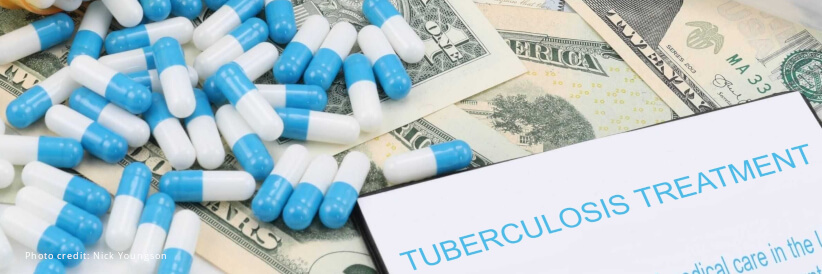Unitaid is launching new investments to strengthen the tuberculosis (TB) care cascade by accelerating access to innovative diagnostic tools and novel all-oral treatments for drug-resistant TB (DR-TB) in 16 high-burden countries across four continents.
Through equitable, person-centered approaches designed and driven by TB-affected communities, this US$15.3 million investment will focus on reaching those with undiagnosed DR-TB and linking them to quality care.
TB remains the leading cause of death from an infectious disease and the rise of drug resistance is worsening the crisis, with over 400,000 people developing DR-TB each year. Yet diagnosis rates remain low, and over half of those affected are never diagnosed or treated. This is largely due to limited access to reliable testing and affordable, effective treatment options.
Recent breakthroughs in DR-TB research have led to World Health Organization recommendations for the use of new, shorter, all-oral treatment regimens. These regimens are safer, more effective, and easier for patients to complete, compared to conventional treatments that can take up to two years and often involve daily injections with severe side effects. Novel diagnostic technologies that can quickly identify drug resistance can help pair patients with the most suitable course of treatment in just a few days. While efforts to introduce these innovations are underway, access is still limited in many countries.
“As a person who has lived through TB, I understand the value of being heard and involved. The Unitaid-supported projects will give the TB affected community not just a voice but a role in the fight against DR-TB. The community driven approach will save lives, restore dignity and demonstrate that we are partners in ending TB,” Stephen Anguva Shikoli, National coordinator Network of TB Champions Kenya.
Three complementary projects led by the Kenya Legal and Ethical Issues Network on HIV and AIDS (KELIN), Partners in Health (PIH), and the Stop TB Partnership will bring quality prevention, diagnosis, and treatment services closer to those most vulnerable to the disease. Together, partners will implement innovative community-led strategies to strengthen the DR-TB care cascade by improving case-finding and linkages to care, and supporting people with DR-TB to stay on treatment. Unitaid’s investment will advance community-led interventions that create demand for new diagnostics and novel treatments, while addressing barriers that prevent people from getting tested and started on treatment, and helping countries strengthen the quality of care within national TB programs.
“Too many still lack access to timely, effective diagnosis and treatment for drug-resistant tuberculosis” said Dr. Philippe Duneton, Executive Director of Unitaid. “With this investment, Unitaid is supporting interventions designed by and for the communities, to ensure that the latest innovations in drug-resistant TB reach those who need them most.”
The three projects will lead efforts to improve DR-TB care in Belarus, Cameroon, the Democratic Republic of Congo, India, Kazakhstan, Kenya, Liberia, Moldova, Nigeria, Pakistan, Peru, South Africa, Tajikistan, Ukraine and Zimbabwe, with the goal of developing strategies that can be scaled up across high-burden countries globally.
As the largest multilateral funder of TB research and development, this latest investment builds on Unitaid’s broader TB portfolio which is accelerating access to innovative tools and strategies to test, treat, and cure this disease. These investments pave the way for the future, ensuring that countries can integrate the best tools and approaches for TB prevention and treatment into national strategies as they become available.
The new funding follows the announcement that Unitaid and the Clinton Health Access Initiative (CHAI) have secured an agreement with Korean manufacturer Poskom to significantly reduce the price of ultraportable AI-compatible chest X-ray devices, helping bring TB screening closer to communities.

